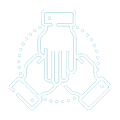Breaking the Cycle of Shopping Addiction
Shopping Addiction is a behavioral condition that is frequently overlooked or mischaracterized as indulgence or materialism. In reality, it is a compulsive and emotionally driven cycle that often functions as a form of psychological escape. Professionals who excel in business, law, medicine, or finance may appear composed and successful, yet privately struggle with compulsive spending habits that disrupt emotional well-being, relationships, and financial stability.
At Blair Wellness Group, clients receive individualized, concierge-level care designed to address the underlying emotional and psychological patterns that sustain Shopping Addiction. Treatment is tailored to each client’s goals, values, and lifestyle, offering a confidential path to greater clarity, self-control, and emotional resilience.
Understanding Shopping Addiction
Shopping Addiction, also known as Compulsive Buying Disorder, is marked by repeated and uncontrollable urges to make purchases despite negative consequences. This behavior is often used to manage anxiety, regulate mood, reinforce identity, or avoid emotional discomfort. While the act of shopping may offer temporary relief or satisfaction, it is typically followed by guilt, shame, or emotional distress.
This condition is not defined by the amount of money spent, but by the emotional compulsion behind the behavioral patterns. The addiction often operates beneath the surface, masked by professional polish and financial autonomy, making it difficult to recognize and even harder to disclose.

Psychological Drivers Behind Shopping Addiction
Shopping Addiction is rarely about the material items acquired. Instead, it reflects deeper emotional patterns related to avoidance, identity, and control. For many professionals, the behavior serves as a way to manage internal experiences that feel intolerable, such as:
- Emotional emptiness or loneliness
- Anxiety or chronic stress
- Perfectionism and self-comparison
- Depression or low self-worth
- Feelings of inadequacy masked by an external image
- Unresolved trauma or attachment disruptions
Over time, this coping mechanism reinforces a cycle of impulsivity, secrecy, and emotional dependence on the behavior itself.
Signs and Symptoms of Shopping Addiction
While the presentation may vary, common signs of Shopping Addiction include:
- Difficulty controlling spending or stopping purchases once initiated
- Using shopping to self-soothe during emotional distress
- Feeling guilt, shame, or regret after shopping
- Concealing purchases or financial decisions from partners or colleagues
- Relationship conflict centered around spending habits
- Shopping online or in-store as a habitual escape
- Emotional withdrawal or agitation when unable to shop
Clients often describe feeling “out of control” despite being disciplined in other areas of life. This internal contradiction can lead to further isolation and resistance to seeking help.
Other Services
-
Alcohol AddictionAlcohol Addiction
-
Drug and Substance AbuseDrug and Substance Abuse
-
Food AddictionFood Addiction
-
Pornography AddictionPornography Addiction
-
Sex AddictionSex Addiction
-
Social Media AddictionSocial Media Addiction

Office Hours
Mon - Fri :
7 am - 11 pm
Sat - Sun :
9 am - 10 pm
Why Shopping Addiction Often Goes Undetected
Shopping Addiction can be particularly difficult to detect in clients with financial means, demanding careers, and well-developed public personas. The behavior may be minimized as a personal indulgence, rationalized as lifestyle maintenance, or framed as a reward for professional success.
However, when shopping becomes a means of emotional regulation, avoidance, or identity reinforcement, it is no longer benign. Left untreated, it can contribute to relational instability, financial stress, self-esteem erosion, and co-occurring psychological conditions such as Anxiety Disorders, Depression, or Emotional Avoidance.
At Blair Wellness Group, clients receive compassionate, nonjudgmental care that honors both their achievements and their private struggles.

Therapy and Interventions for Shopping Addiction at Blair Wellness Group
Blair Wellness Group provides discreet, results-oriented treatment for Shopping Addiction through a personalized and confidential therapeutic process. Dr. Blair works with each client to understand the emotional function of compulsive buying, identify triggers, and build emotional regulation strategies that restore agency and balance.
Treatment may include:
- Cognitive Behavioral Therapy (CBT) to disrupt compulsive thought patterns and reinforce behavioral control
- Psychodynamic Psychotherapy to explore emotional origins, attachment dynamics, and identity conflicts
- Emotion-Focused Therapy to enhance insight, regulation, and vulnerability tolerance
- Executive Coaching, when relevant, to integrate emotional wellness with leadership performance
The goal is not to eliminate shopping altogether, but to change the underlying emotional relationship to spending. Clients develop the capacity to meet emotional needs directly rather than through compulsive behaviors.
We offer evening and weekend appointments for our concierge patients and all patients upon request.
Begin a Personalized Treatment Plan
Shopping Addiction is both treatable and understandable. At Blair Wellness Group, clients receive exceptional, one-on-one care that addresses the psychological roots of compulsive spending with expertise and discretion. Whether this issue has affected relationships, financial well-being, or personal integrity, treatment can provide the clarity and emotional strength needed for lasting change.
To begin a personalized treatment plan, contact Blair Wellness Group today.
Frequently Asked Questions About Shopping Addiction
What is the difference between shopping addiction and occasional overspending?
Shopping addiction involves a compulsive pattern of spending that serves an emotional or psychological purpose. Unlike occasional overspending, it reflects a loss of control and often results in distress, secrecy, or relational consequences.
Can shopping addiction be linked to anxiety or emotional avoidance?
Yes. Many individuals use shopping to temporarily manage anxiety, loneliness, or emotional pain. These behaviors often reflect deeper patterns of emotional avoidance or unmet psychological needs.
How do I know if I need therapy for my shopping behavior?
If you experience guilt, shame, or secrecy around spending, or if the behavior is causing relationship conflict or financial stress, professional support is recommended. Therapy provides the structure and insight to understand and change these patterns.
What kind of treatment does Blair Wellness Group offer for shopping addiction?
Dr. Blair offers concierge-level, individualized treatment that addresses the emotional, behavioral, and relational aspects of shopping addiction. Therapy may include Cognitive Behavioral Therapy, Psychodynamic Therapy, or Executive Coaching, depending on the client’s needs.
How does shopping addiction impact professional and personal relationships?
Shopping addiction often leads to secrecy, emotional withdrawal, and financial tension, which can damage trust and connection in both personal and professional relationships. For high-level professionals, these behaviors may also conflict with self-image, disrupt focus, or create reputational risk. Therapy helps clients understand the relational consequences of compulsive spending and develop healthier ways to manage emotional needs and maintain integrity across all areas of life.
Is my privacy protected if I seek help for this issue?
Yes. Blair Wellness Group provides confidential care tailored to professionals who require the highest level of discretion. All treatment is conducted with professionalism, respect, and a focus on trust and client autonomy.
Areas served
Blair Wellness Group proudly serves clients throughout Los Angeles, Beverly Hills, Bel Air, Century City, Hollywood Hills, West Hollywood, Brentwood, Westwood, Manhattan Beach, Irvine, Newport Beach, Laguna Beach, Laguna Niguel, Mission Viejo, Aliso Viejo, Dana Point, Corona Del Mar, Huntington Beach, San Diego, La Jolla, Virginia, and Washington D.C.

Reliable
At Blair Wellness Group, we are here to meet your clinical needs at any time.

Dedicated Support
Our team provides the compassionate care, support, and necessary interventions needed for our clients to achieve their goals and clinical objectives.

Experience
With 15+ years of clinical experience in providing an array of psychological services, we are committed to helping our patients achieve their goals.

Professional Team Support
We are dedicated to the well-being of our clients and have the extensive training to provide them with high-quality care.
Other Services
-
Alcohol AddictionAlcohol Addiction
-
Drug and Substance AbuseDrug and Substance Abuse
-
Food AddictionFood Addiction
-
Pornography AddictionPornography Addiction
-
Sex AddictionSex Addiction
-
Social Media AddictionSocial Media Addiction

Office Hours
Mon - Fri :
7 am - 11 pm
Sat - Sun :
9 am - 10 pm
Get Started Today
Looking for a Local Psychologist?
Our Psychologists and Therapists in Los Angeles, Beverly Hills, Irvine, Newport Beach, and the surrounding areas offer evening and weekend appointments for our Concierge patients. Contact us today to discover how Blair Wellness Group can help you overcome personal or professional challenges and mental health disorders, such as depression, anxiety, relationship challenges, addiction issues, and personality disorders.
Dr. Cassidy Blair is a renowned Licensed Clinical Psychologist and trusted Performance Coach who specializes in providing Concierge-Psychological Care and Executive Coaching for high-achieving professionals. With a deep understanding of the unique challenges faced by CEOs, executives, entrepreneurs, and leaders, Dr. Blair offers tailored, confidential care designed to foster emotional well-being, personal growth, and professional excellence. Her clientele values her discretion, clinical expertise, and emotionally intelligent approach to navigating complex personal and professional dynamics.
- Dr. Cassidy Blair, Psy.D.https://blairwellnessgroup.com/author/blairwellnessgroup/
- Dr. Cassidy Blair, Psy.D.https://blairwellnessgroup.com/author/blairwellnessgroup/
- Dr. Cassidy Blair, Psy.D.https://blairwellnessgroup.com/author/blairwellnessgroup/
- Dr. Cassidy Blair, Psy.D.https://blairwellnessgroup.com/author/blairwellnessgroup/






